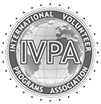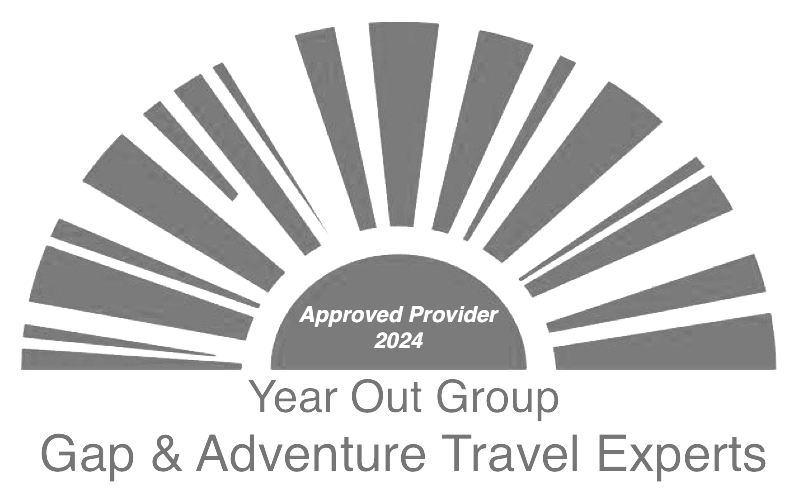Volunteering in Africa - problem or solution?
Volunteering, also known as service-based learning or cultural exchange, is the practice of volunteers coming to a country other than their own to give back or assist others in need. It’s often a way for volunteers to contribute towards alleviating social injustices such as poverty, or the lack of fundamental services such as health or education in third world countries. Volunteer organisations often charge international volunteers a fee for accommodation, transport, and placement at a project in the host country. In Africa, it’s a thriving business for many placement agencies. But do volunteer programmes actually help the people and communities they work with?
The answer is multi-faceted. Tourism is one of the primary industries driving growth and job creation in all the world’s emerging economies. In Africa, it is growing faster than the economy as a whole, and over 9 million tourists visit South Africa per year. While there are limited statistics on how many of these tourists combine their trip with service-based learning or language studies, the rise of volunteering in Africa is well documented. According to the 2018 Brookings Institution Africa Growth Initiative Report on Africa’s tourism potential, a significant portion of the tourists coming to the continent do so for cultural, volunteer-driven experiences.
Good Hope Volunteers (GHV) is a Cape-Town based volunteer-placement organisation that takes in over 400 international volunteers a year across South Africa, Botswana and Namibia. They offer a variety of programmes that span from food gardening to working with children or conservation-led initiatives that aim to offer long-term benefits to the community or environment. “While volunteers can choose a programme, we help them place them according to their skills and interest,” says Vanessa Randon, Manager of GHV and Chairperson of Volunteering SA.
One of their projects is the Nyanga Upliftment Project, which was started by a group of local volunteers in the township of Nyanga. “We encourage volunteers to help out in the different departments, which span from food gardening to HIV/Aids counselling and prevention of mother-to-child transmission (PMTC), social work and support for over +-200 survivors of sexual abuse and their families as well as positive parenting programmes to promote parent-child communication and prevent child abuse and many more,” says Erica Raolane, Nyanga Upliftment Project’s fundraising and volunteer coordinator. One group of mothers are starting their own co-operative after completing the Women’s Wellness and Skills Development Programme, which offers 38 HIV positive women the chance to learn sewing and beadwork combined with HIV counselling. Others sell their products online, to markets or to schools. The garden project itself has led to over 200 homestead gardens that help young mothers provide nutritious meals to their family (with guidance on what to eat and correct portion sizes from an on-site dietician). At a workshop on sexual abuse, Nosipho* shared her story. “I am HIV positive and unemployed. I am in the process of getting a divorce and it’s been a struggle to keep going, and I worry about my children when I am not able to buy them food or clothes. My son was also being abused at school but now he is part of the Orphans and Vulnerable Children (OVC) programme and receiving counselling. My other child is now with the Early Child Development programme. It’s such a relief to know they are taken care of while I develop skills to support them.”
As the number of volunteers increase, so the host organisation will expand to accommodate them. They might need to employ a volunteer coordinator, increase accommodation or provide additional support services such as transfers or food, giving rise to additional job creation. Similarly, Good Hope Volunteers has expanded, with five dedicated employees and a marketing team based in Vienna. From its inception as Good Hope Studies, an English language school where founders Wolfgang Graser and Alexander Kratochwil did everything from picking up students to cleaning their rooms, Good Hope Volunteers formed when its founders realised that students wanted to combine language studies with volunteering. “About 50% of our volunteers combine their language studies with volunteering, the rest combine volunteering with travel, or only volunteer,” Wolfgang confides.
GHV’s Urban Farming Project is a community-driven non-profit that transformed a disused bowling green from the 1950s and a neglected heritage farm (hailing back to 1709) into a thriving community garden and educational space. According to Josephine Fitzmaurice, Farm Manager of the Urban Farming Project, the garden attracts highly skilled volunteers, particularly international Masters Students and local volunteers who are often pensioners, burnt-out corporates on sabbatical or simply taking some time out. One volunteer was studying horticulture overseas, and was able to coax wonderful results out of the chickpeas they were piloting. Another is a local retired schoolteacher who is now heading the educational component of their programme. “Sometimes volunteers come to run projects or programmes that they have developed themselves,” says Jacques Treadway, a dietician and programme manager at Love to Give, a nutritional and skills upliftment programme in the township of Kayamandi, near Stellenbosch. For example, a previously malnourished child who was supported by Love to Give during primary school came back from university to run a programme on recycling. A volunteer from the USA, who trained with the farmers at Good Hope Volunteers’ Urban Farming Project, was instrumental in getting the Khulisa Streetscapes garden project off the ground, creating work for people living on the streets by employing them at two urban gardens in Cape Town.
For the Urban Farming project, both local and international volunteers were crucial, particularly at the beginning when “they really brought the enthusiasm to get the project going,” says Gordon* who volunteered at the project for over three years. “Later down the line, they provided a vital workforce. I certainly couldn’t have managed the work myself,” he attests. The initial drive of volunteers led to the creation of four permanent jobs in the garden itself, and more than 200 jobs through the local market. Yet most some of the criticism levelled at the volunteer industry is that volunteers take jobs away from the local workforce.
According to the New Horizons IV Work Experience Travel report released by the Wyse Youth Travel Confederation (WYSTC), the ideal period of stay for volunteers is 15-30 days, but longer periods can lead to culture shock due to communication barriers and cultural adjustments. Good Hope Volunteers aims to mitigate culture shock by supporting both parties. Every volunteer at GHV is linked up to a support coordinator and full orientation is provided (including safety talks) on arrival, along with a separate orientation and safety instructions at the chosen project. For the benefit of the host organisation, volunteers are vetted, criminal records provided, and a CV and letter of motivation are requested to ensure the volunteer matches up to the programme and can contribute in some measurable way. In addition, 10-15% of the placement fee goes to the NGO, providing much-needed economic benefit.
For the Urban Farming team, they measure their success by increased yield, as well as the level of interest and engagement by the community. “From volunteers to day visitors or schools, more and more people have been inspired to start similar projects, grow their own food or simply share skills and knowledge”, says *Gordon. The project also donates surplus vegetables to the soup kitchen at the Service Dining Room. “It’s a privilege to supply organic vegetables that contribute to the health and wellness of some of the poorest of our citizens,” adds Josephine. “There’s a powerful link between disease and the way we grow our food and platforms like these are very powerful to effect change.”
While South African volunteering organisations lack any kind of accreditation, Vanessa, in her capacity as Chairperson for Volunteer SA, is attempting to put together guidelines for ethical and responsible behaviour that ensures the sustainability of the projects, the programmes and the industry as a whole. “In South Africa, anyone can offer a volunteering programme, whether you’re a game farm or a hostel. We ensure that Good Hope Volunteers offers a higher level of volunteering, from safety standards to programmes that have been carefully selected to align with our company ethics, mission and goals. We personally and strongly do not condone the ‘petting of animals for fun’ and the ‘taking a selfie’ culture that has taken over young people abroad. We would rather be unpopular than associated with organisations that cause harm and involve the mistreatment of animals and children.” GHV visits each project at least once a year, joined The Wyse Youth Student Travel Confederation (WYSTC), the International Volunteer Programmes Association (IVPA) and have recently been accredited by the Year Out Group, a UK non-profit umbrella organisation representing volunteer tourism providers.
With massive social inequalities in Africa, a rapidly growing population, increased urbanisation and lack of adequate health and education services there is ceaseless pressure on NGO and government programmes. Whether you call it volunteering, cultural exchange, experiential or service learning, volunteers help relieve some of that pressure. By providing their services to others, they both learn from different people and cultures and share their own skills, culture and life experience. For the organisations and NGOS they support, volunteers offer much-needed help, energy and enthusiasm, contributing towards the goals of creating self-sufficiency in the communities they serve. While a volunteer’s time at a project may vary, there is a positive ripple effect throughout the community. For most volunteers, their experience is deeply personal, even transformative – one that affects their life and future choices.
(article written by Melissa Andrews)
To be part of our amazing volunteer community, please contact us.
Follow us on Instagram (@good_hope_volunteers), Facebook (@goodhopevolunteers) and Twitter (@GHVvolunteers)

